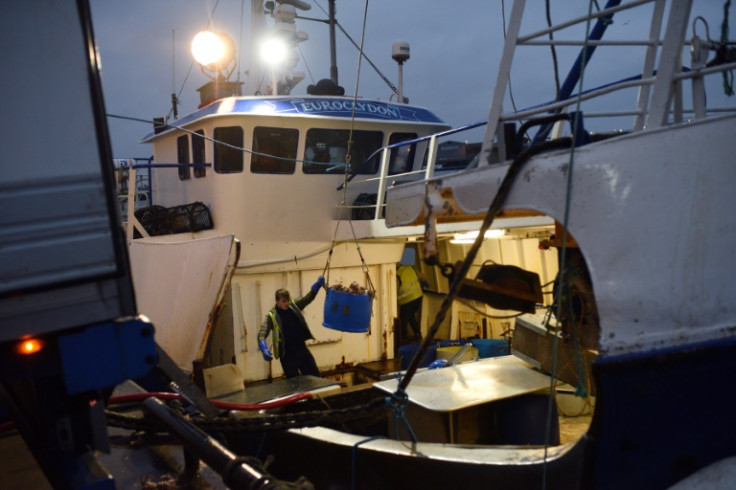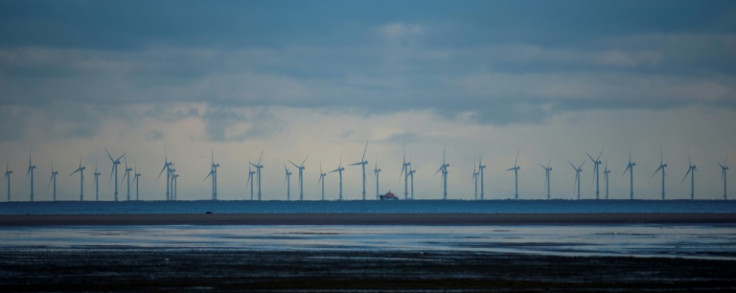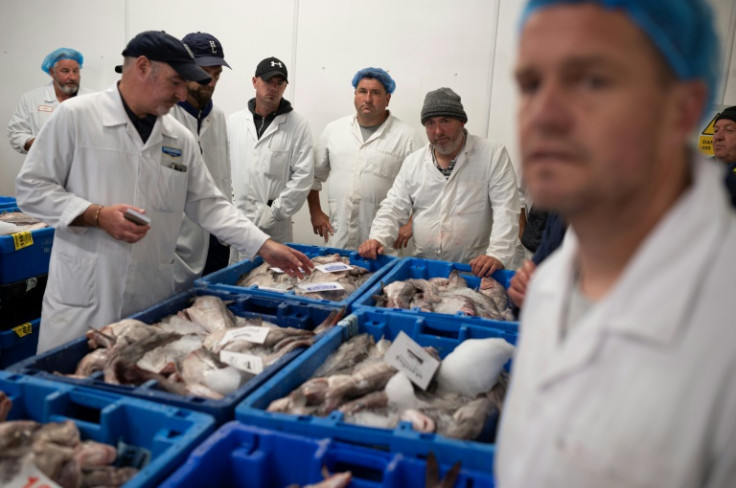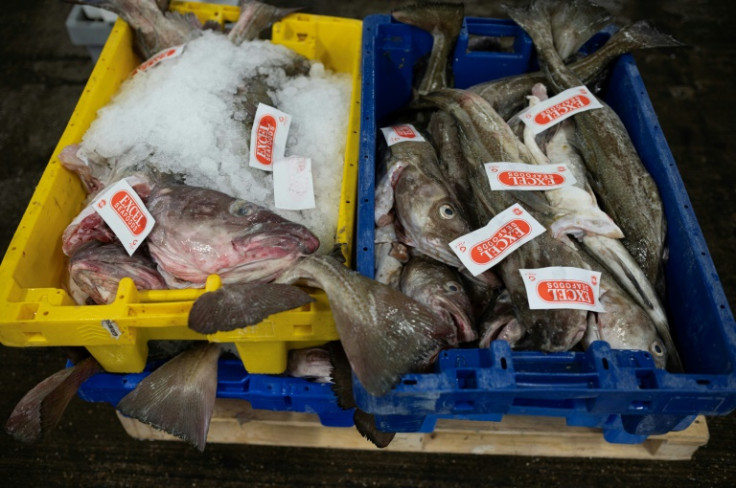Gripes In Grimsby Over Brexit Fishing Failure

Grimsby, perched on the southern side of the River Humber, near Kingston-upon-Hull in northern England, was built on the fishing industry.
Some 70 percent of people in the town voted for Brexit, hoping that the UK's departure from the European Union would boost its flagging fortunes.
But seven years on from the landmark referendum, those who banked on a turnaround are disappointed, while those who feared it are not taking it lying down.
At 7:00 am, the auction at Grimsby's wholesale fish market in the heart of the town's vast docks is in full swing.
"We have mackerel. 1.5 (pounds) a kilo? 1.7? 1.8? 1.9?" shouts the auctioneer.
For an island nation, fishing is surprisingly small fry, accounting for just 0.03 percent of the British economy. But it still stirs passions.
Then-prime minister Boris Johnson visited the wholesale fish market on the 2019 general election campaign trail, in which he vowed repeatedly to "Get Brexit Done" as divorce negotiations continued three years after the referendum.
Johnson had also said that leaving the EU would bring a "massive boost" to the local fishing industry.
Indeed many of the current traders gathered under the market's strip lighting voted "Leave", hoping it would end European quotas and competition.
But Patrick Salmon, owner of a craft smokehouse, said that hasn't happened.
"The French and the Spanish come to the UK, fish our fish, and then they take it home, process it and sell it back to us," he told AFP.
"That's bonkers. We should have control of our own waters and you lot (Europeans) should be thrown out. However, that will possibly never happen."
Salmon's small business is not unduly affected by Brexit for now, as he gets his fish from Scotland and Iceland.
One day he said he would like to export to France, Belgium and other EU countries, even if it means much more paperwork than before.
Fish market manager Martyn Boyers is another "Leave" voter. He said the UK was so far not doing a very good job of being self-sufficient.
In the mid-20th century, Grimsby was one of the world's leading fishing ports, until the fleets of trawlers began to disappear in the 1970s.
Fishermen blamed the "cod war" over fishing grounds with Iceland, then EU quotas that carved up the seas around Europe, reducing British boats' catch.
At the same time, a generation of sailors died out, their children unwilling to follow their fathers into the profession.
Global warming, which forced fish to migrate north, and overfishing have also contributed to the decline.
Now, the UK's main fishing port is Peterhead, in northeast Scotland, leaving Grimsby with only a handful of specialist boats, a network of traders and processing plants.
Five thousand people are employed in the sector in a town with high unemployment.
Boyers said Brexit has not had a huge effect on the fish market but some fish processing contracts have been lost.
Iceland has bypassed the UK, and now sends direct to the European mainland, he said.
Brexit, which promised Britain's fishing industry freedom, has left a bitter taste in the mouth of traders like Nathan Goldley, who voted "Remain".
"Brexit has made it harder to import fish from Europe," said Goldley, who runs Premier Seafood.
"I was used to buying and selling by a click of a button... I don't want to be limited to buying and selling British products."
Goldley said reams of forms and delayed deliveries of highly perishable goods have dented his profits, forcing him to give up supplying shrimp to France.
Like many provincial towns, Grimsby's town centre has seen better days.
Even for 20-year-old waitress Emily Jennins, Brexit has had an impact.
"People my age didn't get to vote. They said it would be good for small businesses but so many have closed," she added.
Regret from those who voted for Brexit, those who didn't, and those who couldn't vote at all appears to be growing.
Polls indicate that more and more Britons believe Brexit has been a failure.
Grimsby Conservative party councillor Philip Jackson is looking on the bright side, however, pointing to government regeneration projects to replace money that used to come from the EU.
"There's been a big push towards decarbonisation and offshore wind... which is bringing new types of jobs and employment into the area that is not related to Brexit," he said.




© Copyright AFP 2024. All rights reserved.





















